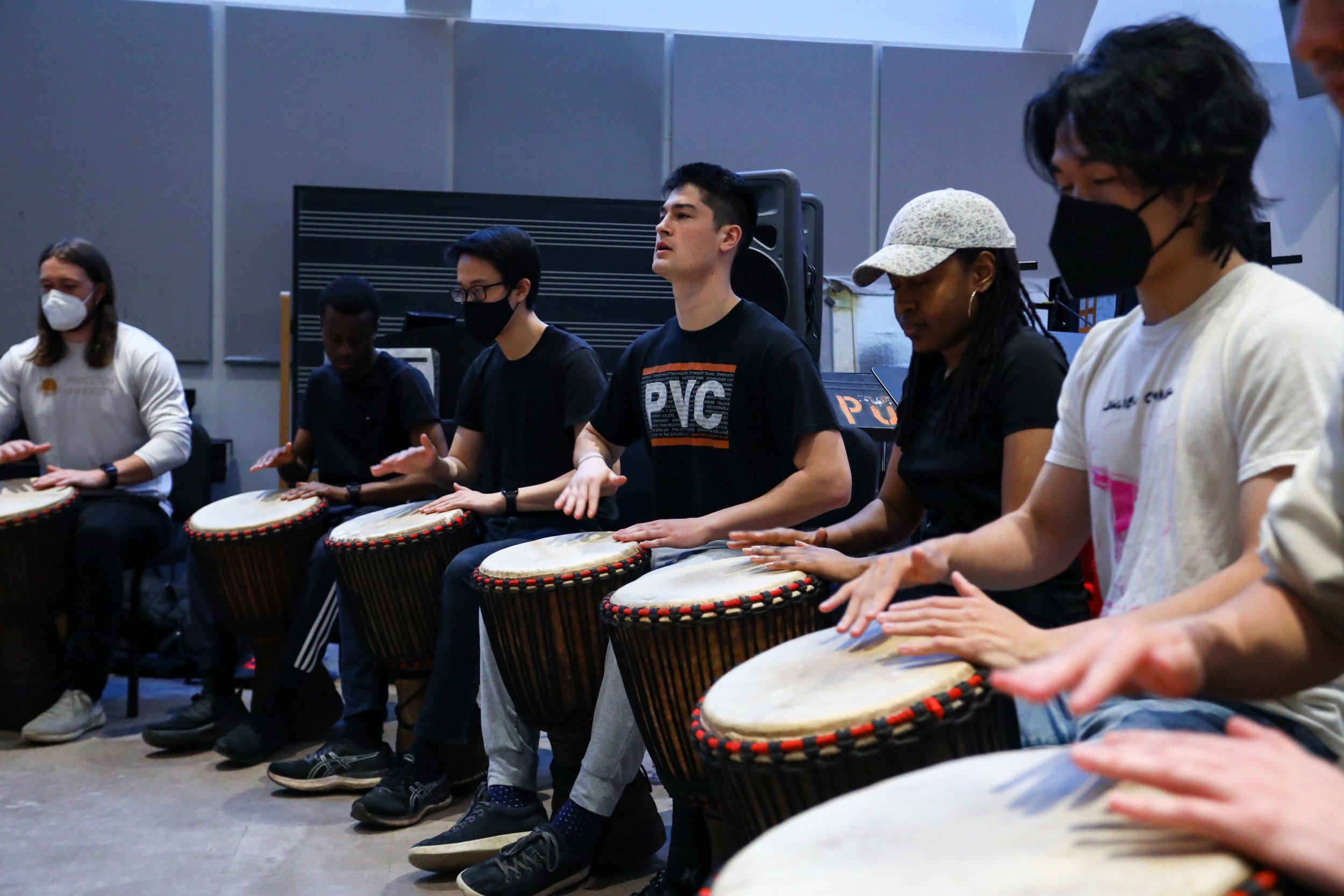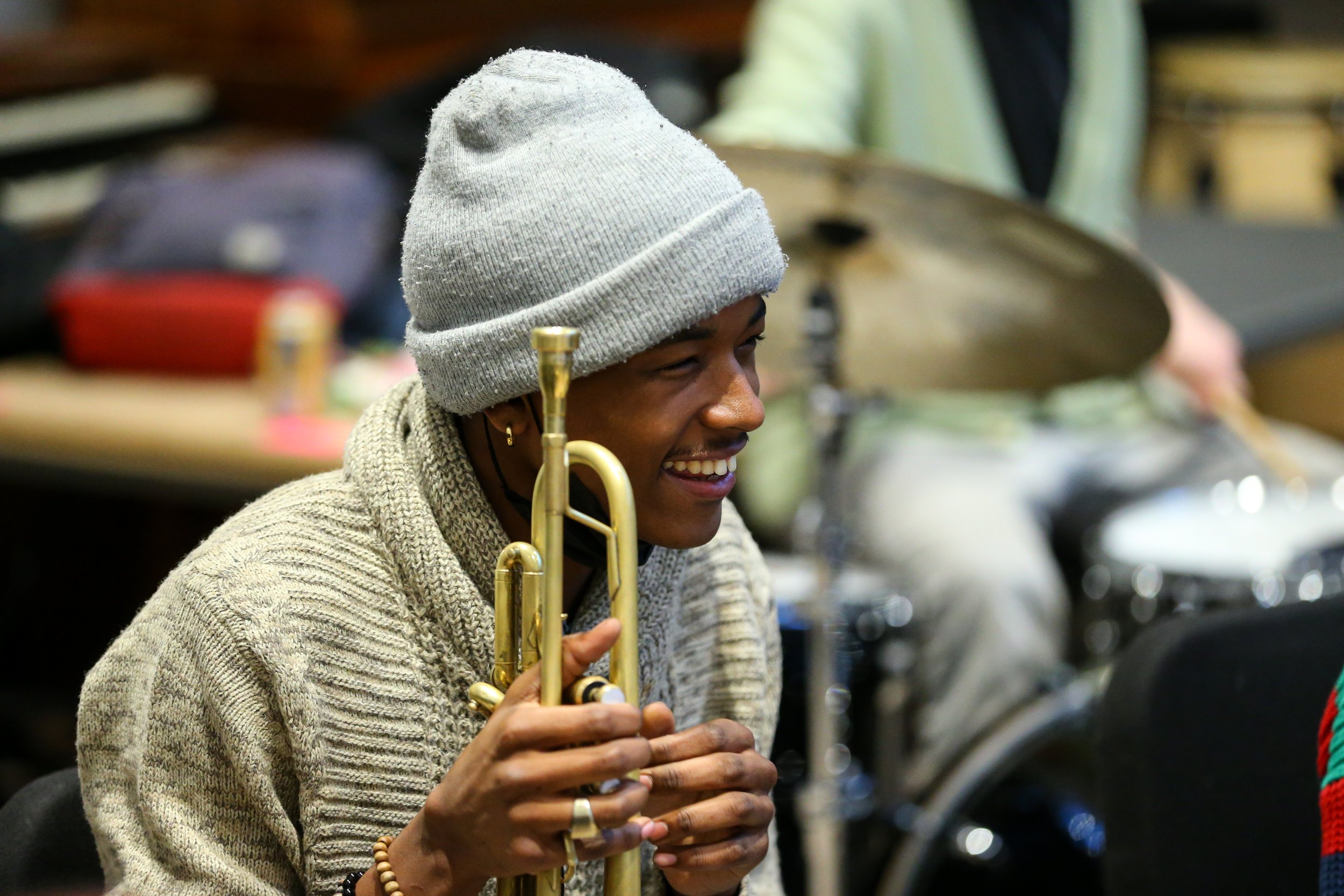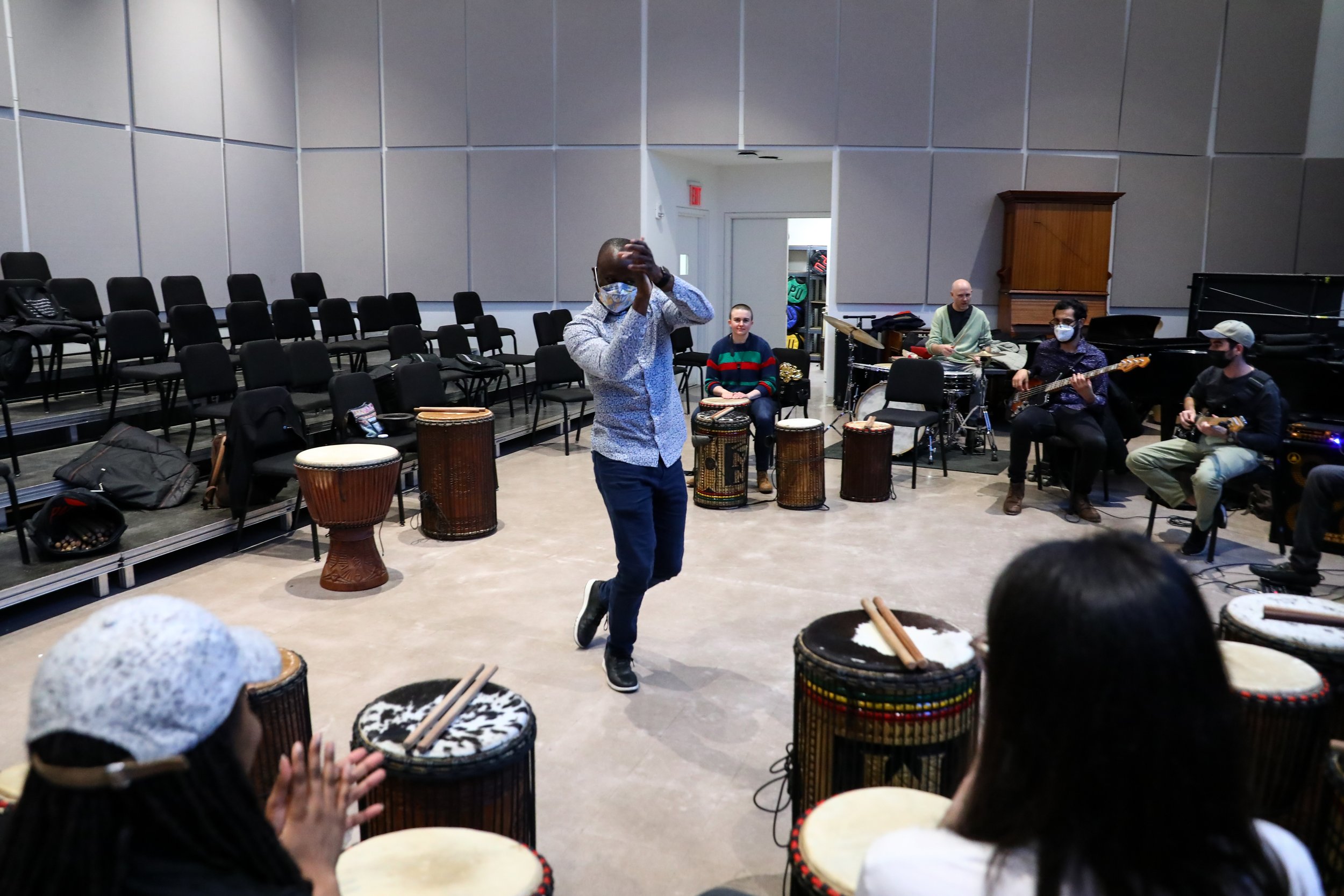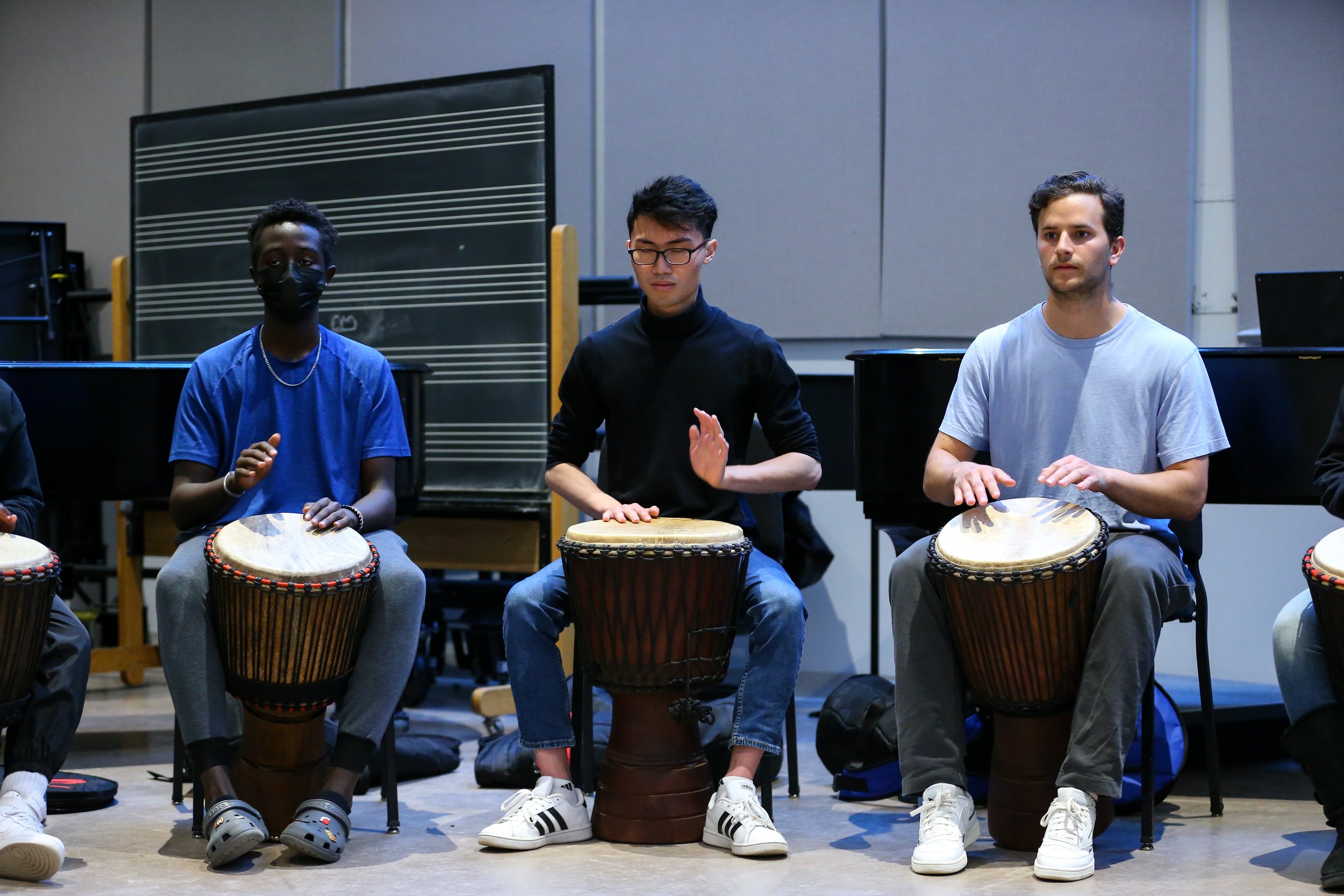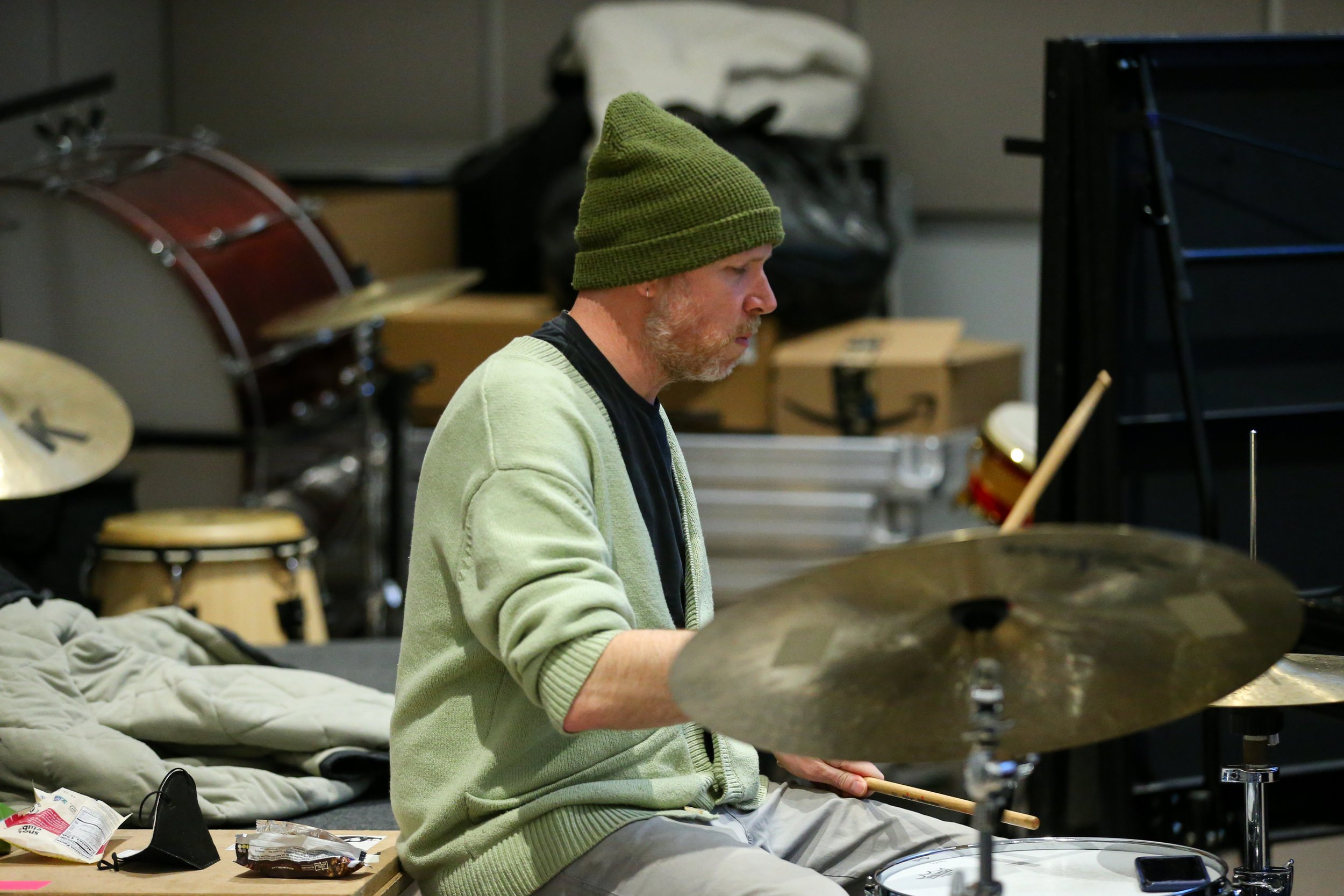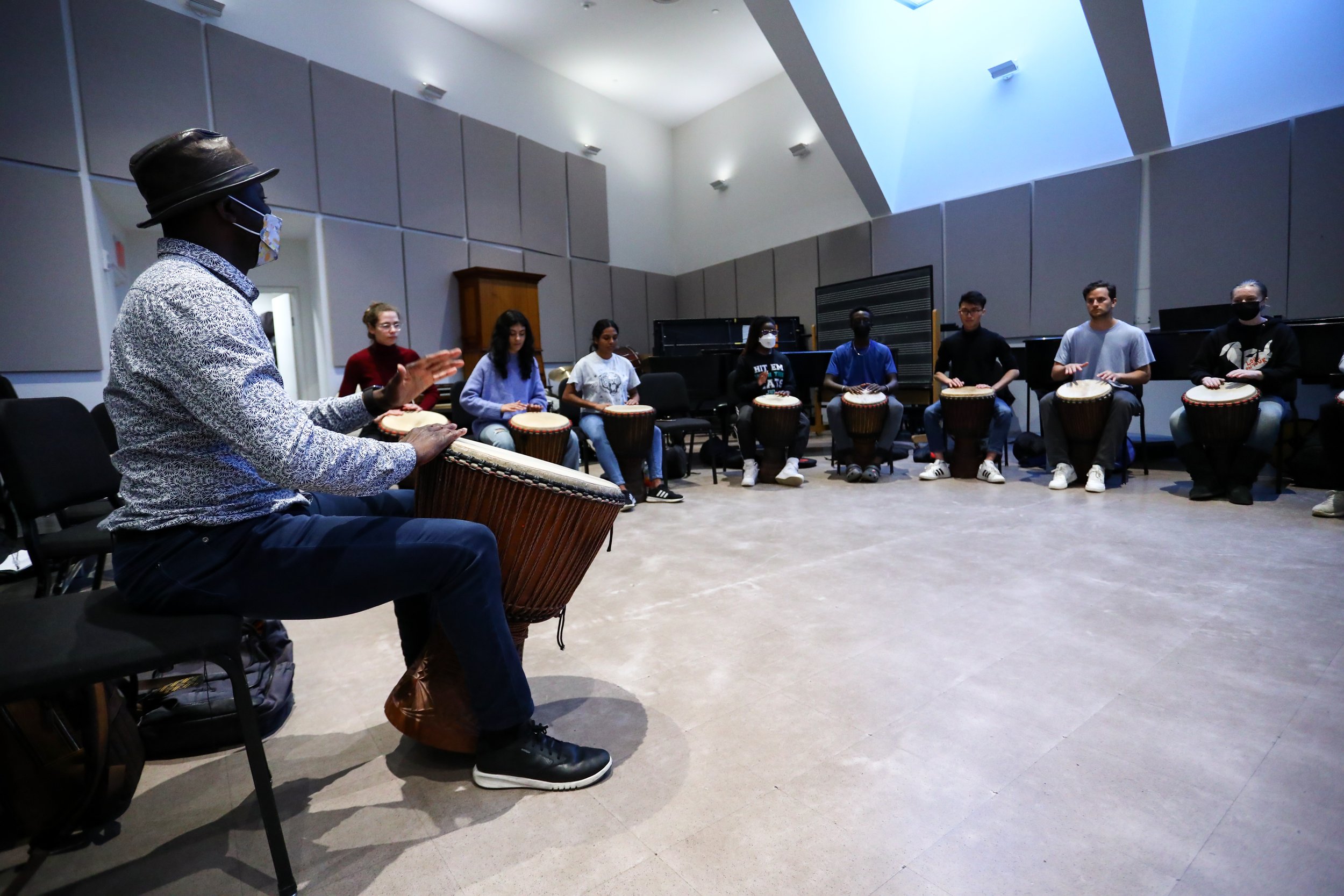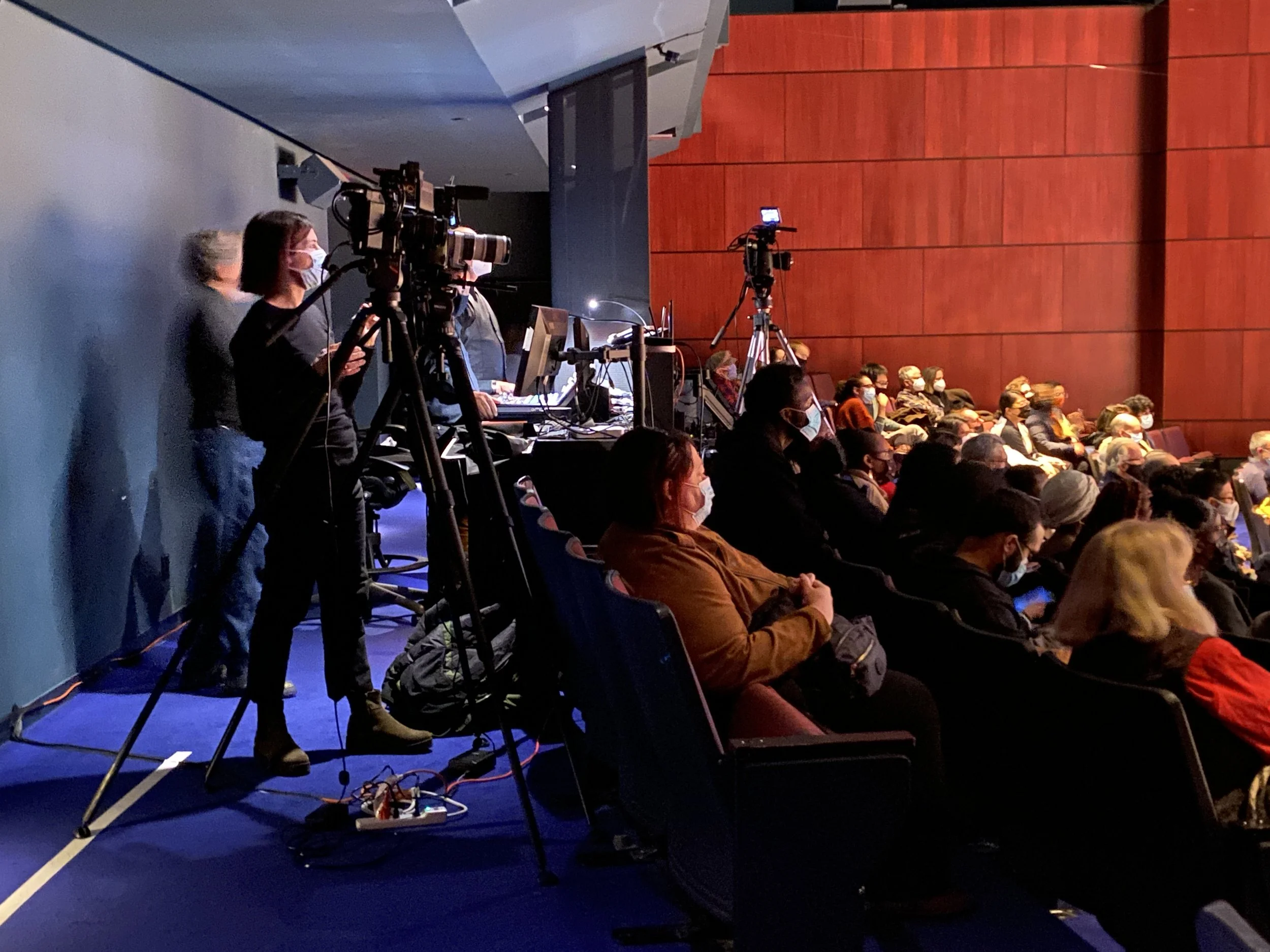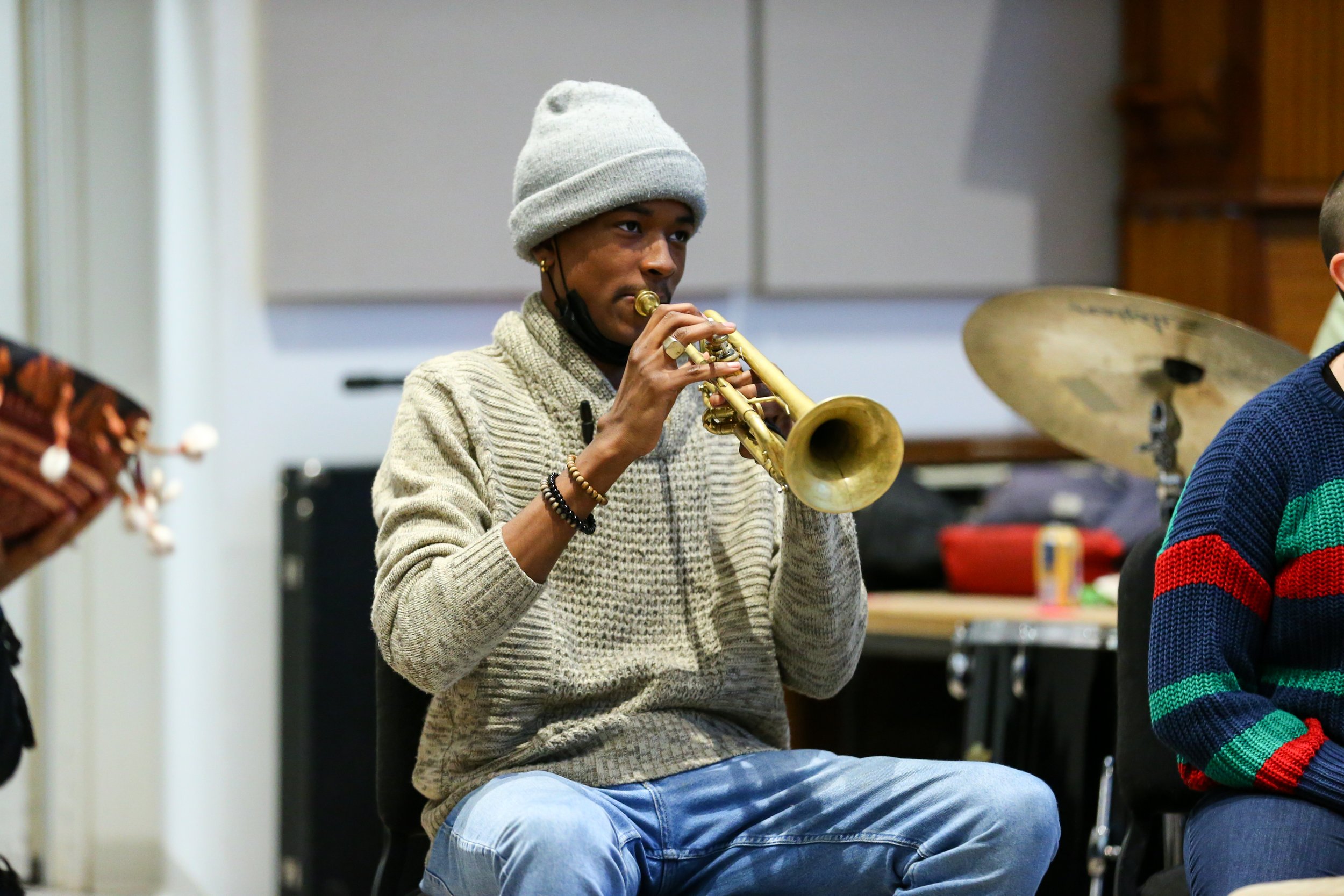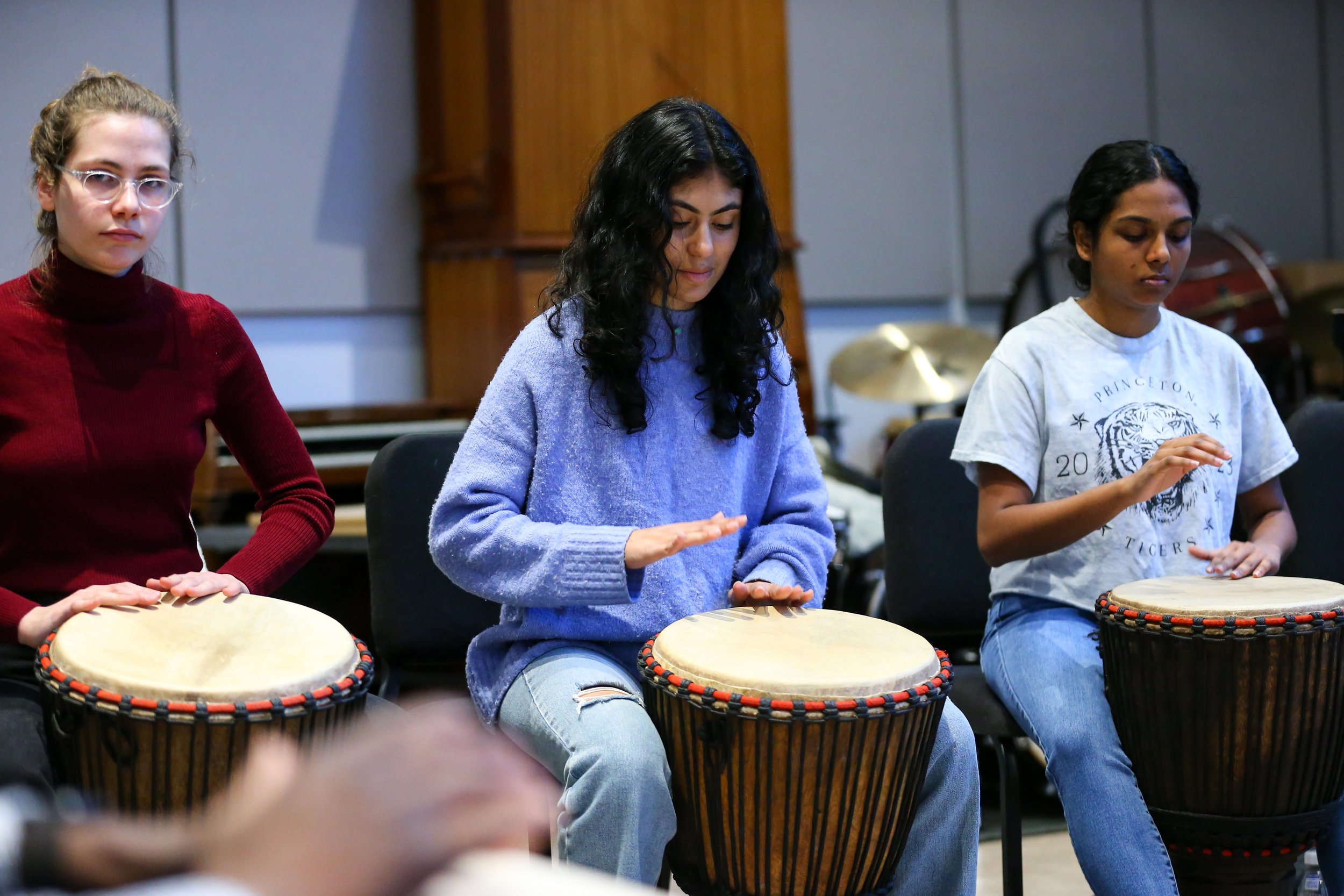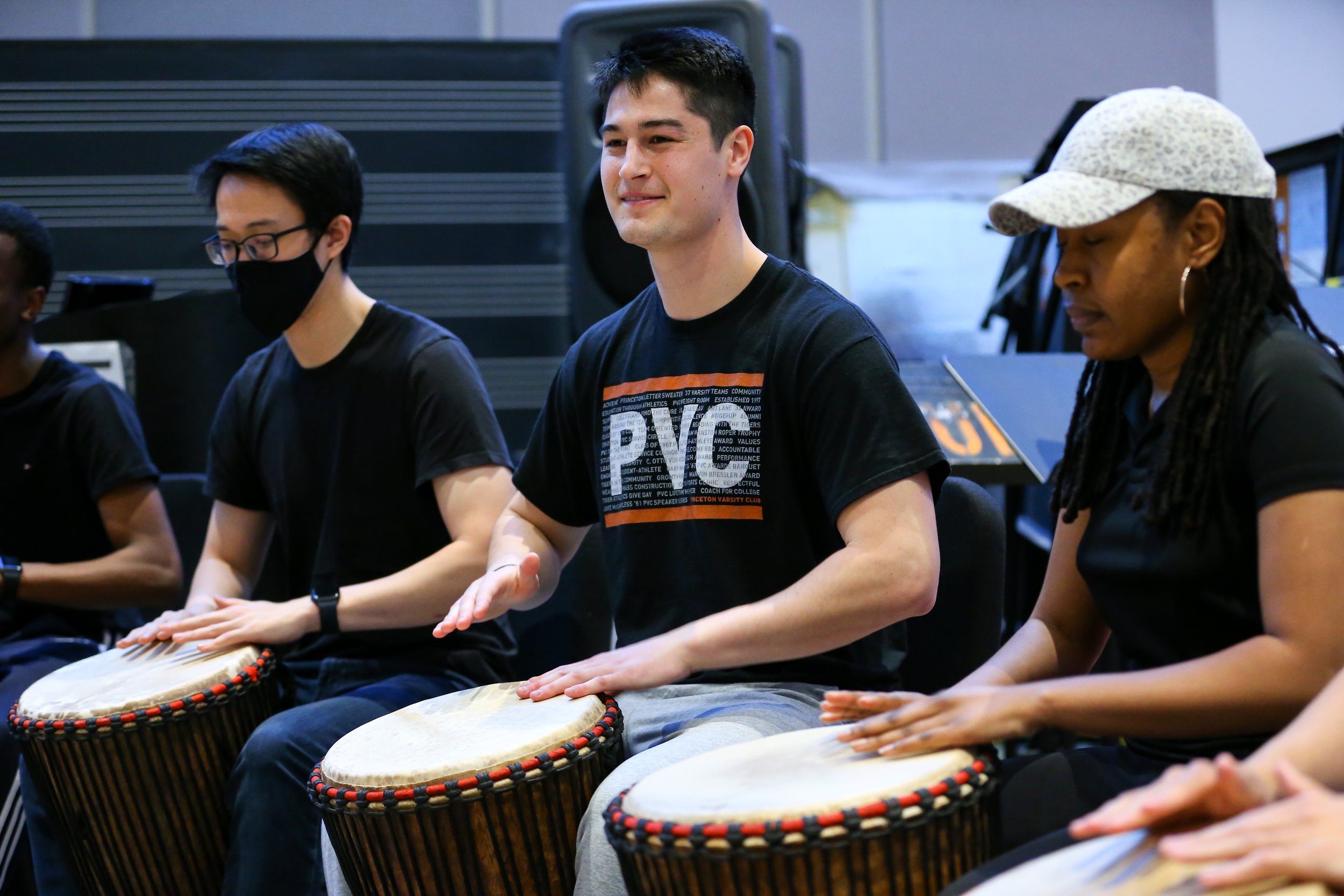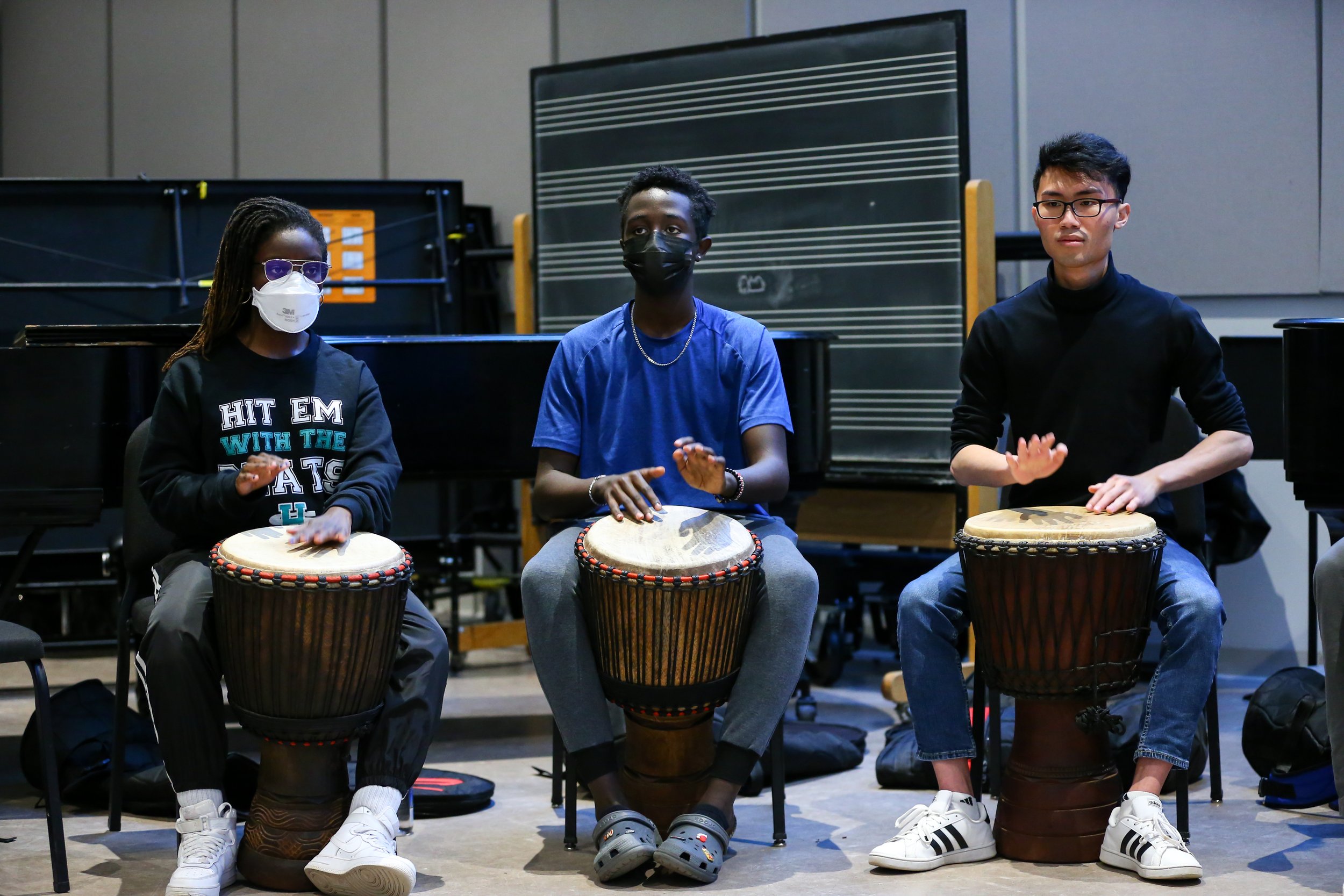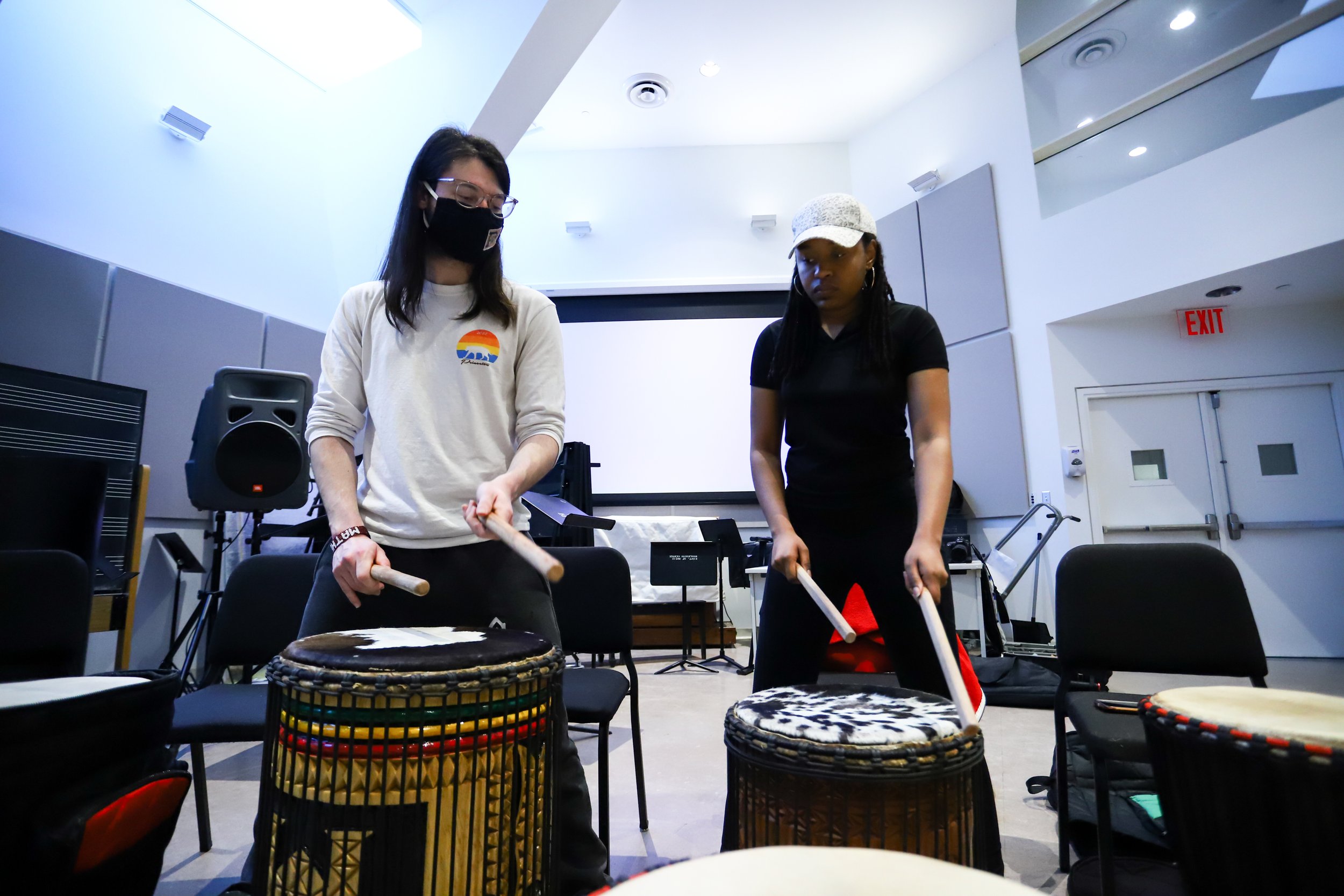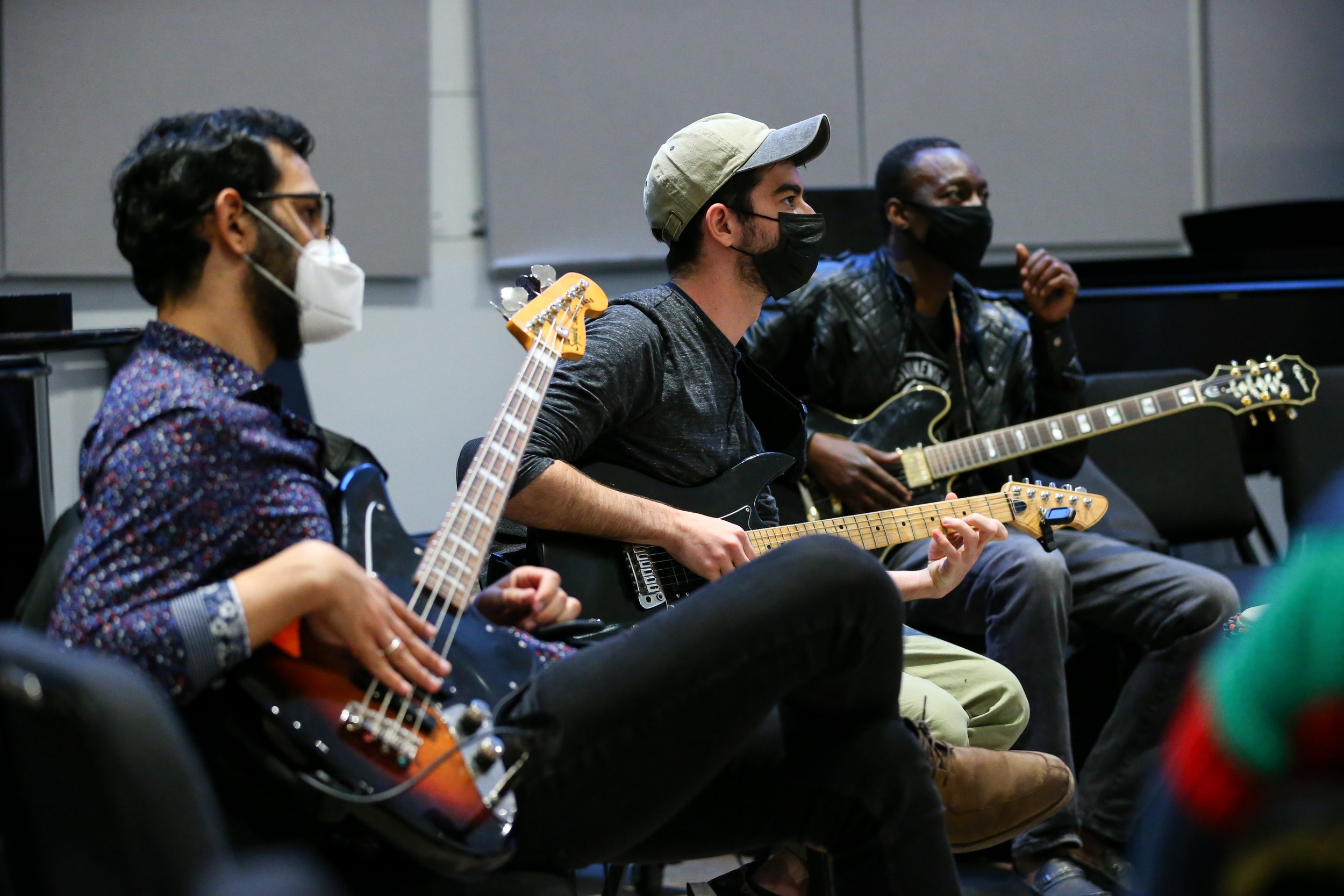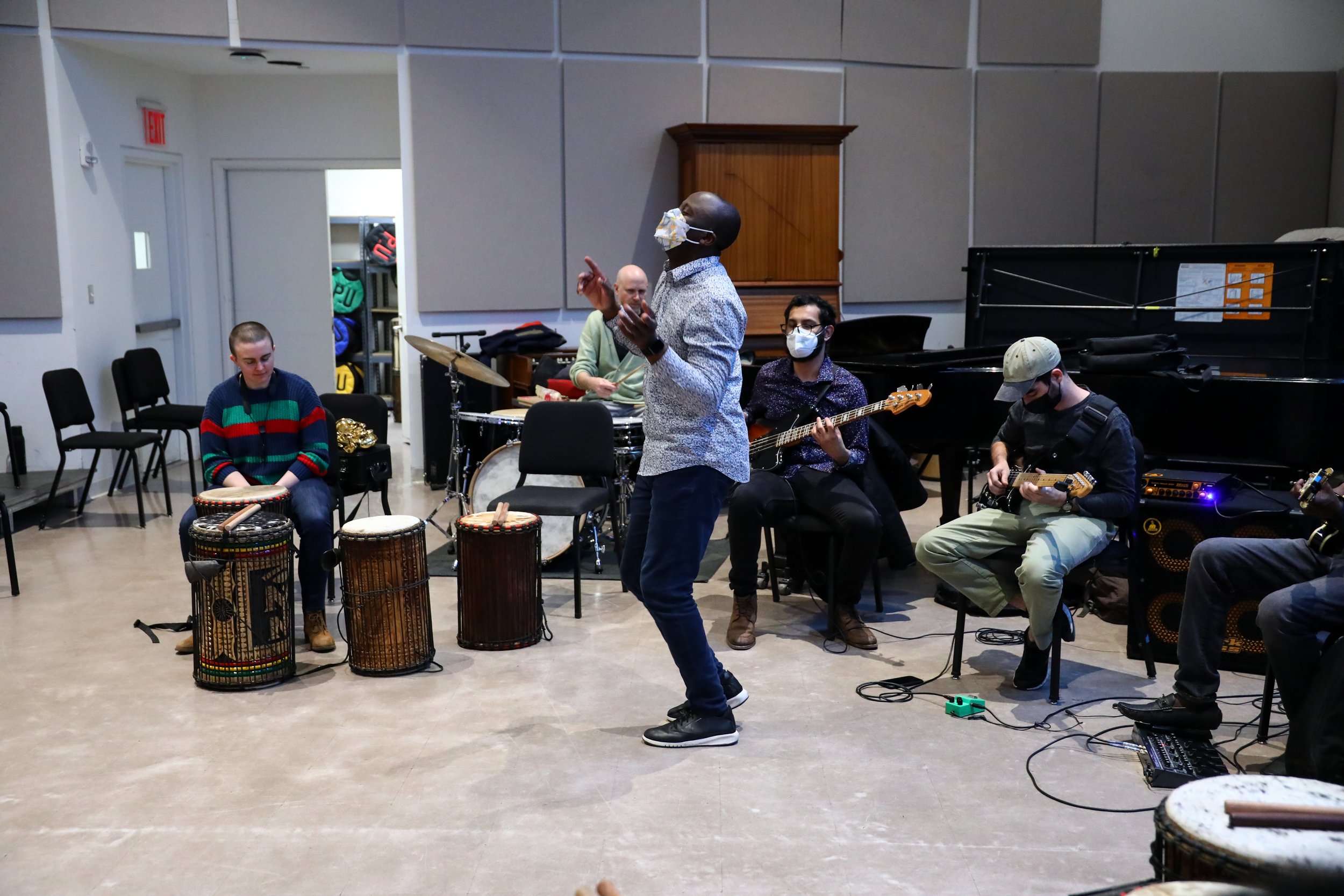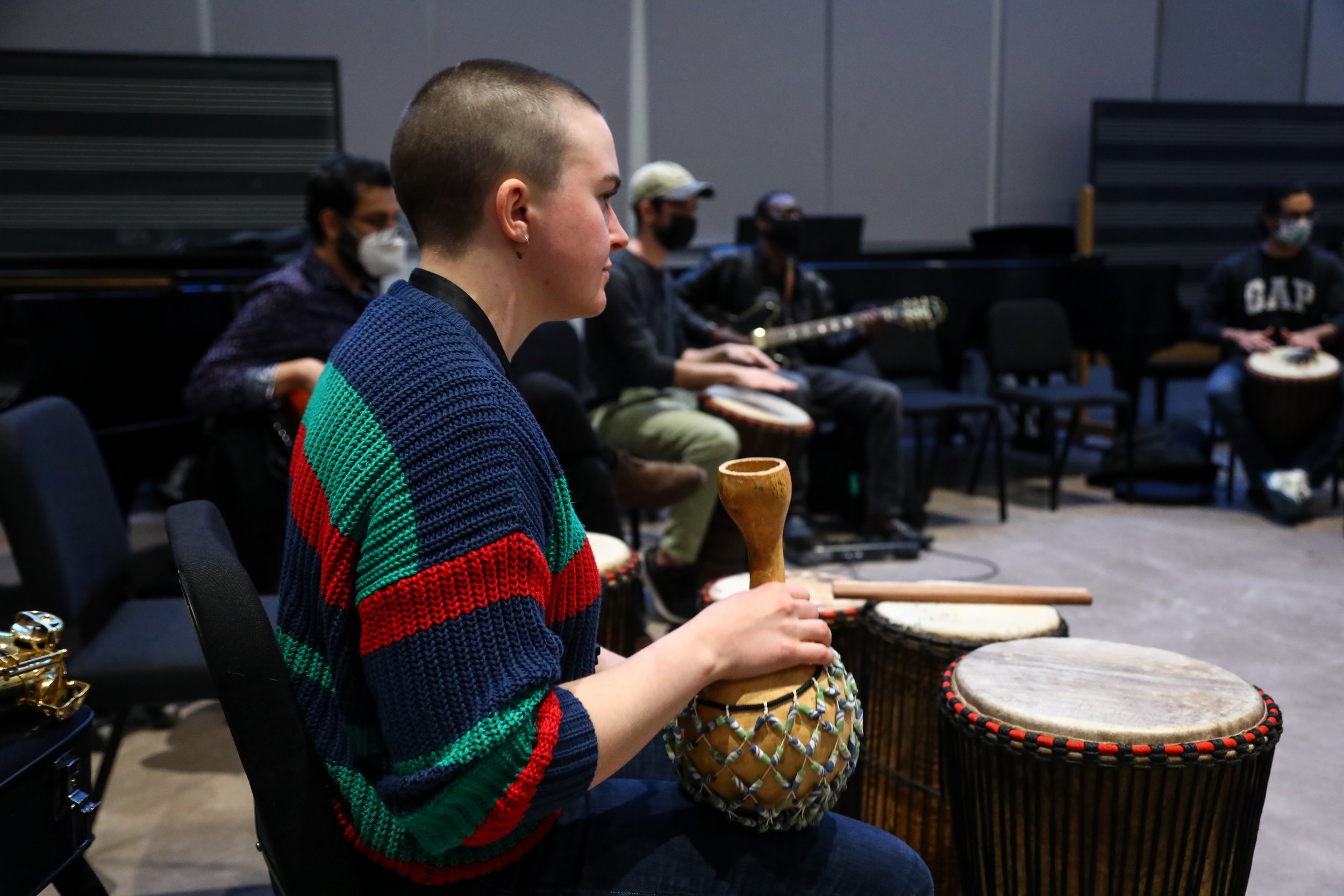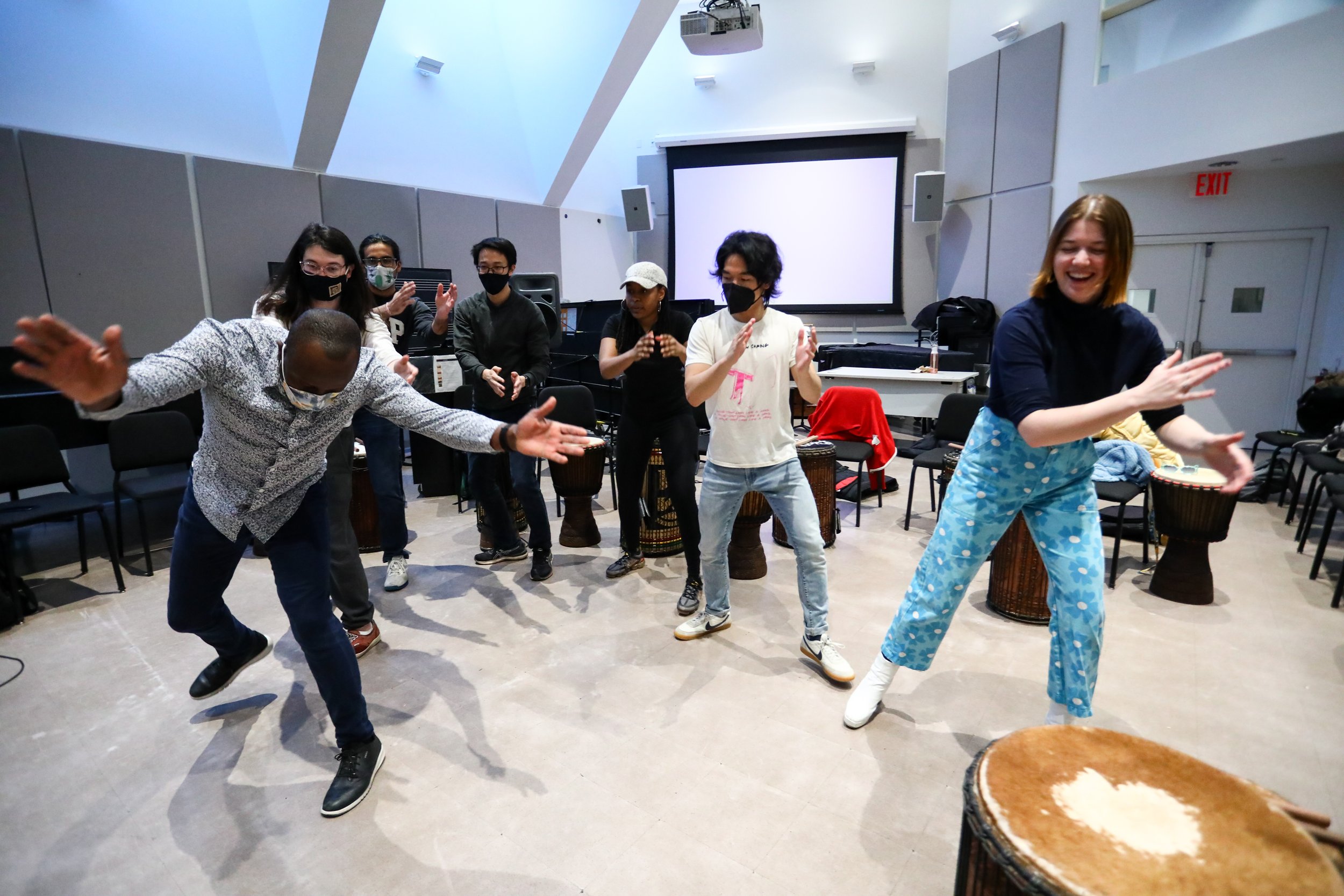African Music at Princeton University

Led by Olivier Tarpaga, Lester Horton Award-winning musician, dancer, and choreographer, African Music at Princeton University connects students with artists and scholars from all five regions of the African continent to enable vibrant creative experiences and the rigorous study of African music, dance, and culture.
Through courses, performing ensembles, workshops, and conferences, the Department of Music’s offerings in African music emphasize the importance of cultural understanding, illuminates the history of Africa and diasporic communities, and promotes an environment of acceptance and positivity.

Get Ready for Timbuktu Grooves:
The Princeton African Music Festival
September 29 - October 1, 2023 at Princeton University

JOIN AN ENSEMBLE
Afrobeats Ensemble
In the Afrobeats Ensemble, Princeton University students can explore sounds and rhythms originating from cities across Africa.
That’s Bamako and Johannesburg, Kinshasa and Abidjan, Lagos and Nairobi, Ouagadougou and more. From Fela Kuti in Nigeria to Soukous from the Democratic Republic of Congo. From Coupé Décalé in Côte d’Ivoire, to Desert Rock and blues from Mali.
All students are welcome to join the Afrobeats ensemble, a group that includes instruments from a range of times and regions. Instruments from Western rock, jazz and classical contexts combine with traditional West African drums, harps, and wind instruments in an exploration of music, rhythm, movement, and expression. No audition necessary. Registration will be announced at the beginning of each semester.
Traditional Ensemble
IIn the Traditional Ensemble, Princeton University students learn about and play music from West Africa, focusing mostly Mandé music, plus a wide repertory of rhythms and sounds from Burkina Faso, Mali, Senegal, Guinea, The Gambia, Ghana, and the Ivory Coast.
Olivier Tarpaga and guest artists share with students the history, cultural significance, and techniques for playing traditional instruments, including the djembe and dundun. Spanning studies in rhythm, timbre, meaning, movement and narrative, the Traditional Ensemble immerses students in the connections of music, dance, and story. Just as with the Afrobeats Ensemble, students in the Traditional Ensemble have opportunities throughout the year to perform in concerts, festivals, and other cross-campus collaborations. All students are welcome to join the traditional ensemble. No audition necessary. Registration will be announced at the beginning of each semester.
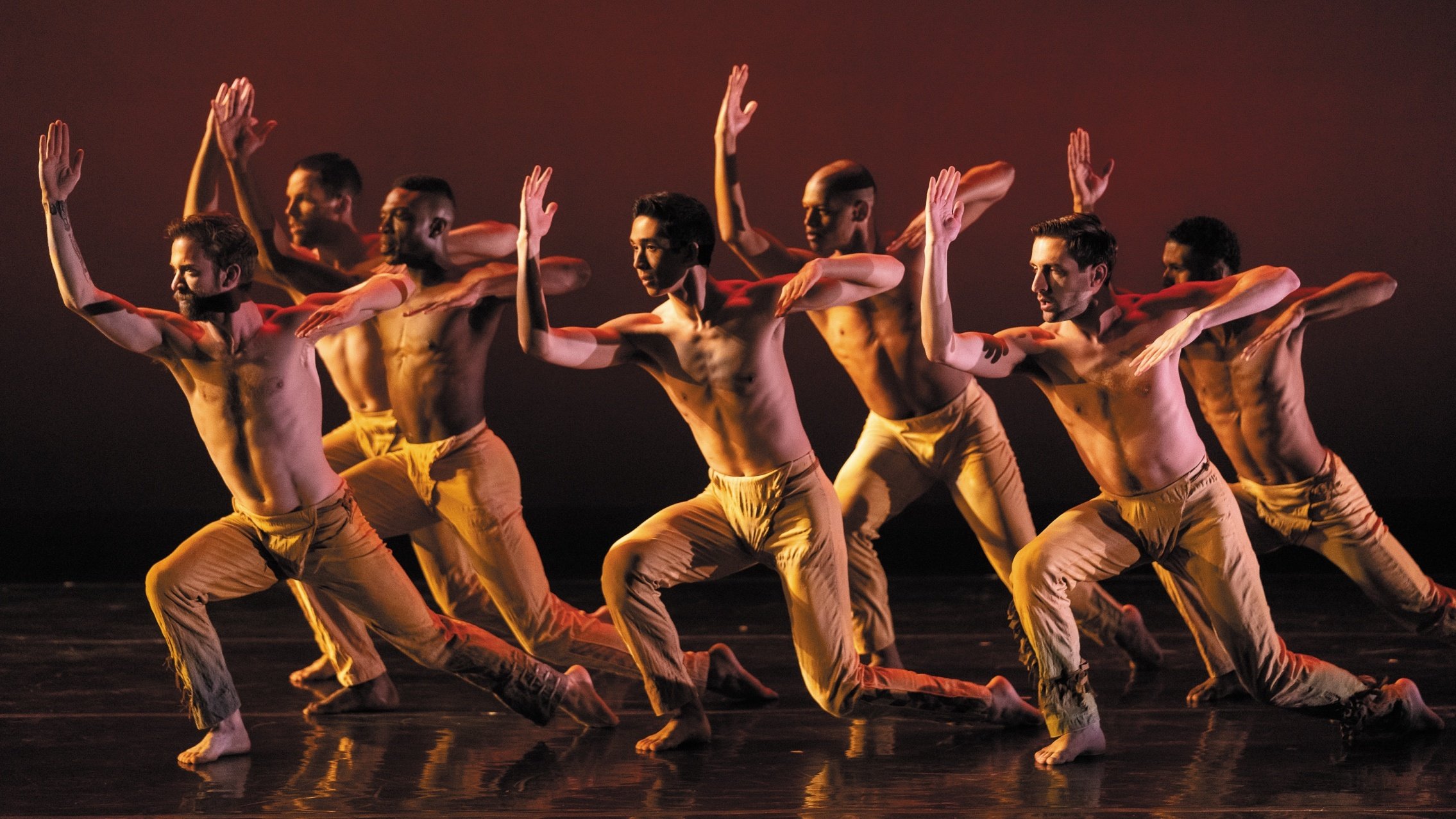
Olivier Tarpaga's Only One Will Rise (2022)
Commissioned and performed by the Limon Dance Company and co-commissioned by Jacob's Pillow
Showing July 20–24, 2022 at Jacob’s Pillow (MA)
Photo by Steven Pisano
ATTEND AN EVENT
Each year, the Department of Music at Princeton University hosts world renowned artists of African music to collaborate and create with students.
A range of concerts, interdisciplinary performances, and workshops in African music, dance, and culture are available to both the Princeton University community and public audiences.
We invite you to join us and experience firsthand the dynamic songs and rhythms of African music, both contemporary and traditional.

“In the context of West African tradition, music and dance are one. One does not exist without the other.”
TAKE A COURSE
Students who take courses at the Department of Music at Princeton University have the opportunity to learn about systems of music scholarship, composition, history, and performance from around the world. Across the Department of Music’s varied curriculum there are courses that thread techniques, concepts, rhythms, and methodologies from all five regions of Africa into the course of study.
Scroll down for a selection of courses, and click here to visit the registrar’s website to see all Department of Music course offerings.

Directed by
Olivier Tarpaga
Olivier Tarpaga is a Lester Horton Award-winning musician, dancer, and choreographer originally from Burkina Faso. The Founder and Director of the African Music Ensemble for Princeton University’s Department of Music, Tarpaga has performed and taught music and dance in more than 50 countries throughout Africa, Europe, the Americas, Asia, and Australia.

GALLERY










